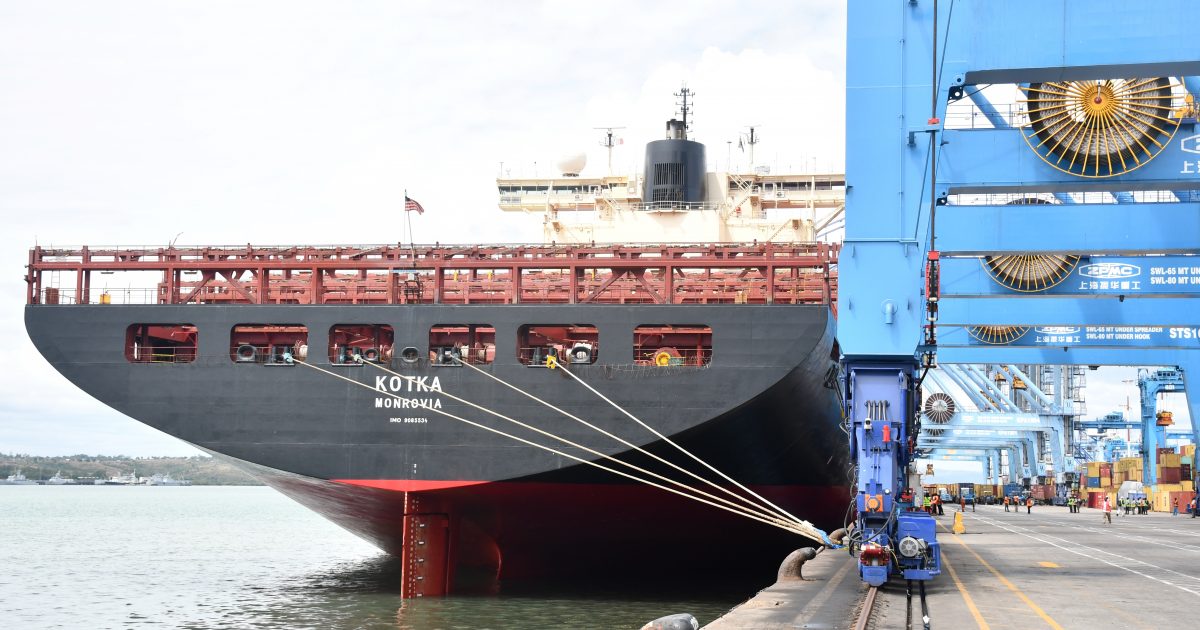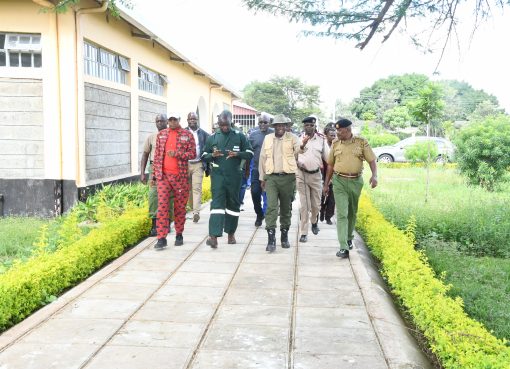The Port of Mombasa has received the longest cargo ship to ever call on its harbors, a testament to efficiency and a boost to the port as a hub.
The container vessel dubbed MV Kotka Monrovia with an overall length of 318 meters, 43 meters in breadth, and a draft of 9.3 meters docked at the Mombasa port from Durban, South Africa to load 5,877 containers for disbursement to the port of Abu Dhabi.
Speaking when he received the ship, General Manager (GM) in charge of Cargo Operations Dr. Sudi Mwasinago said that the calling of the vessel to the port reinforces the confidence key players in the maritime space have demonstrated working with the Port of Mombasa.
Mwasinago said that the capacity and competence at the port are some of the indicative signs that have persuaded maritime players. From state-of-the-art equipment, an imperative investment the port has made, to the low turnaround times in clearance of vessels.
“The complement of the equipment at the port especially on the ship-to-shore cranes which stands at a total of 16 is a massive investment and we would like to thank the government and the board of directors for the continued support,” said Mwasinago.
He added that the container handling business at the port has been on a steady upward trajectory comparatively over the last two years. He said that at the start of the year, the port registered a record monthly performance of 162,000 containers, an impressive feat that was informed by the efficiency of the port.
“We had an explosive start to the year where we registered a record monthly performance, a feat that can be attributed to the efficiency the port has demonstrated, especially in the container handling business,” added Mwasinago.
Towards the tail end of last year, new entrant vessel liners made their maiden calls at the Mombasa port. The container handling in particular welcomed global liners that debuted at the port given the myriad of challenges ports around the region faced due to prevailing global economic dynamics.
The General Manager also pointed out the challenges currently being experienced by shipping lines using the Suez Canal and its effects particularly on container shipping have created a crisis in trade and transshipment of goods.
He said the impact of the crisis at the canal has forced many shipping lines to reroute to the Cape of Good Hope in South Africa, prompting massive logistical alterations that in turn will affect business globally.
“About 12 percent of global trade passes through the Suez Canal with 30 percent of that being container shipping, in the short term the Mombasa port will continue to operate at optimum and normal levels but in the long run shipping lines will adjust operations and we shall feel the impact,” said Mwasinago.
By Andrew Hinga




